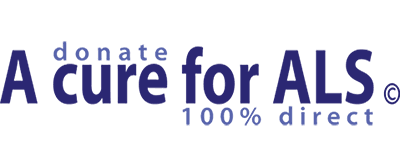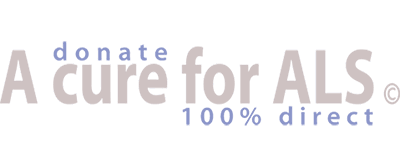Patrick Kim
 During the contact weekend in the ALS care residence ‘Middelpunt’ we are meeting Patrick Kim, a young man originating from the far Birma. Patrick lives in Antwerp with his wife and their two young children: Sing and Michael. Patrick looks happy and in a good mood, his family is full of life, however, Patrick is having more and more difficulties with walking and moving his arms. Talking is also becoming very difficult and he needs his wife to talk in his place.
During the contact weekend in the ALS care residence ‘Middelpunt’ we are meeting Patrick Kim, a young man originating from the far Birma. Patrick lives in Antwerp with his wife and their two young children: Sing and Michael. Patrick looks happy and in a good mood, his family is full of life, however, Patrick is having more and more difficulties with walking and moving his arms. Talking is also becoming very difficult and he needs his wife to talk in his place.
How did you end up here in Belgium?
I came here approximately eleven years ago as a political refugee. That time, Birma was ruled by dictatorship. My brother and sister live in the USA, my parents are still living in Birma. I was 23 years old when I fled Birma, and my original plan was to go to the UK, but my plane landed here. The asylum service advised me to apply for asylum here because entering the UK would be difficult.
Did you start working here?
I applied for asylum first, otherwise you have very little freedom. It took about six months to arrange an interview. If after the interview, the decision is made that you can stay, you can start looking for a job. That was before I was married, I was all alone here. I started working in a night shop, I harvested apples and also worked in a restaurant. Initially I worked in Brussels, after a year I moved to Antwerp. I also worked a year for the PCSW (Public Service for Social Welfare) as a handyman, later in a private postal company for three years. After that I worked in the freezer of a logistics company. That was my last job before I found out that I had the disease.
How did the disease begin, what were your first symptoms?
It began two or three years ago, I had difficulties talking. After my thumb, which I needed to control the forklift, started twitching, we went to see a doctor. At first, it was my left thumb, not much later my right. The doctor referred us to someone else who determined it was ALS.
Did you know what it was? How did you feel hearing about the diagnosis?
No, we did not know what ALS was, not at all. They explained it to us then. We were already married and both children were born. It was not easy to hear, but you need to process it as it comes. You need to accept it and stay strong. Since June, I have a wheelchair. I went to see my family in Birma before then and I could hardly walk anymore when I came back. We live in an apartment on the fourth flour, fortunately there is an elevator.
How does your wife cope?
I often worried, and worry still, that I had to leave him alone for entire day to go to work. I take the kids to school around 7 and around 8 I start working. Around noon I can visit Patrick at home during my lunch break. I set out glasses of water and food, as well as a tin in case he needs to pee.
I am planning on quitting my job and use the PAB (Personal Assistance Budget) so I can take care of Patrick. Normally I set out the water on the table and he could drink, but lately it is getting harder for him, the glasses slip out of his hands onto the floor.
Two afternoons per week we have help, but some things I rather do myself because he does not feel comfortable with someone else washing him for instance.
Have you accepted the disease by now?
In the beginning I was angry if I could not do something, or if I dropped something. Now I have become calmer, the frustration I experienced in the beginning is almost gone as well. I live my life one day at the time and prefer not to think too much, especially about the future.
I notice that your children are extremely lively, which creates a significant contrast with yourself at this time. Isn’t that hard for you, not being able to play with them like you used to?
Sometimes I want to play with them, but like the other day I fell off a chair. My wife tells me not to play, but I cannot help it, it is important for them as well to have that connection.
The children are still little, are they aware of what is going on?
The youngest one not really, but the oldest one knows his dad is ill. He does not know what it exactly is. My wife always tells him to be careful. If he is in the bathroom he always calls his mom. He is more afraid than we are that his dad will fall.
Do you feel bored sometimes? Do you watch a lot of TV?
Yes, the entire day! I record a lot of shows and watch them during the day, like documentaries on BBC, National Geographic and Animal Planet and of course a lot of movies.
You can see that a lot of people here have an electrical wheelchair, which creates a more mobile and free life. Is that a positive thought for you that you will be able to have that advantage?
Absolutely, however, our home now does not offer those possibilities because of the stairs. Maybe if we move, I would want to use it to go outside alone. In any case, we applied for another home because the disease is rapidly progressing and the application takes some time. Three months ago, for instance, he could still eat by himself and now I have to feed him.
Did you go back to Birma to see your birthplace?
I went back because Birma offers a lot of alternative therapies such as massages and I wanted to try that. Unfortunately it did not help.
Did you tell your parents?
Yes, I told them. I used to be a very sporty person and played soccer every day. That makes it hard for them to understand it and accept the situation.
How is it like to have ALS in Birma?
Very bad, there is no social security program and you have to pay for everything yourself. I am very happy to be in Belgium now, the care system here is fantastic. I am glad I did not travel to the UK.
What is your opinion about the #ALSIceBucket-Challenge? Did you receive a lot of responses from your environment?
Yes, unbelievable. My wife’s colleagues for instance send us a lot of messages via social media and such. We hope that on the long run we or other patients can benefit from it.
You are from Birma, are you Buddhist?
No, I am catholic. My faith has helped me in accepting the disease. Maybe that is the reason why the culture in Birma is more reliant and I can accept more easily what is happening to me, but I have to admit that it has been and still is very hard.
Translation: Chloë Rutten
Source: ALS Liga-magazine 167 – January, February, March 2015


